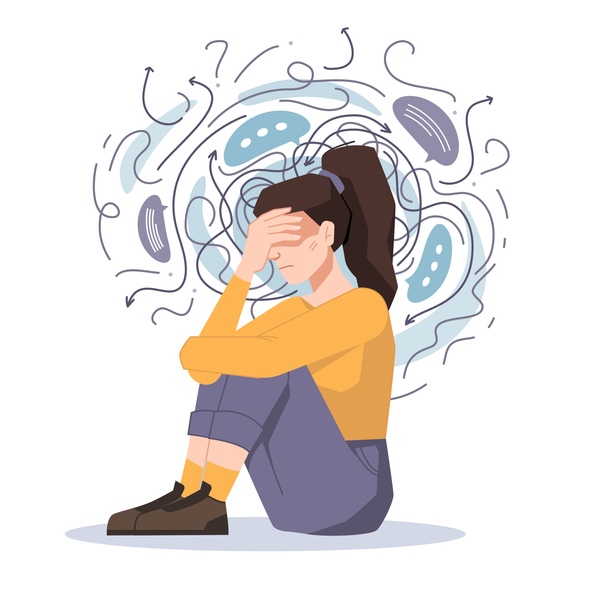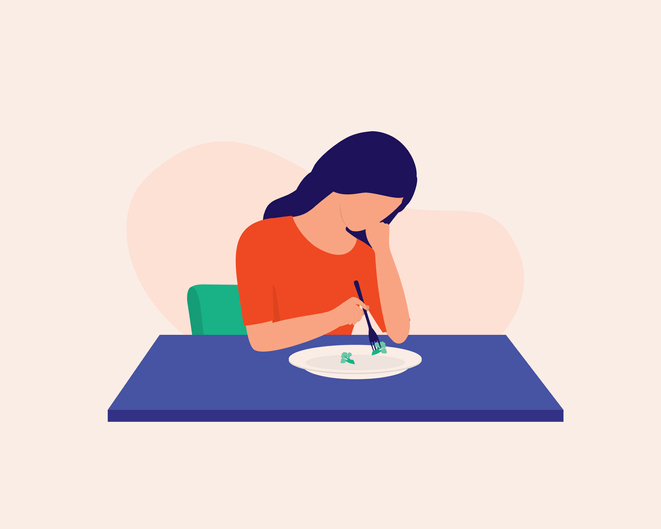Pregnancy and Your Mental Health: The Complete Guide

In broader discussions of pregnancy and mental health, most people think about postpartum or postnatal depression. However, maternal mental health is important during all stages of a woman‘s pregnancy - before conception, during pregnancy, and after birth - which is referred to as perinatal mental health.
This article will give an overview of some common perinatal mental health problems, risk factors, symptoms, and ways to support your mental health or the mental health of a loved one during and after pregnancy.
Common Perinatal Mental Health Disorders
There are several mental health disorders that may occur during and after pregnancy. The most common ones are reviewed below, along with a description of risk factors and symptoms to look out for and discuss with your healthcare provider.
1. Depression and Mood Disorders
Depression and other mood disorders, such as bipolar mood disorder, are common in the perinatal period. Depression occurs in approximately 14-23% of women during pregnancy and 5-25% after birth, and an estimated 1 in 7 women develop bipolar mood disorder. Some factors that increase the risk for depression during and after pregnancy are a personal or family history of depression before pregnancy, financial or marital stress, lack of support, and pregnancy, birth or breastfeeding complications. Risk factors for bipolar mood disorder include a personal or family history, genetics, and brain structure/function.
Depression and other mood disorders during and after pregnancy can sometimes go unrecognized amongst all of the other physical and emotional changes that occur. Many women experience ‘baby blues’ after delivery, which unlike depression, is temporary and lasts less than two weeks. Symptoms of depression last two weeks or longer and include:
- Persistent sadness and crying
- Anger or irritability
- Changes in appetite or sleep patterns
- Feelings of guilt, shame, or hopelessness
- Not interested in or enjoying things you used to enjoy
- Thoughts of harming yourself or your baby
Symptoms of bipolar mood disorder include:
- Periods of severe depression
- Periods with an elated mood (mania)
- Rapid speech
- Racing thoughts
- Continuous increased energy
- Overconfidence
- Inability to sleep
2. Anxiety Disorders

Anxiety disorders, such as generalized anxiety disorder (GAD) or obsessive-compulsive disorder (OCD), are another common type of perinatal mental health disorder. Anxiety is very common and is estimated to impact between 20-30% of women during or after their pregnancy. Some risk factors for perinatal anxiety disorders include a personal or family history of anxiety disorders, lack of social support, and a history of pregnancy loss or complications.
Much like depression, anxiety during and after pregnancy may go unnoticed amidst the typical worries and stresses of pregnancy and motherhood. Some symptoms of an anxiety disorder include:
- Excessive, near-constant worry
- Intrusive thoughts about childbirth or pregnancy loss
- Feeling something bad will happen
- Difficulty relaxing
- Changes in appetite or sleep patterns
- Physical symptoms - dizziness, hot flashes, or nausea
3. Eating Disorders

For people with a history of anorexia, bulimia, or binge-eating, pregnancy can bring about a whole host of triggering experiences. One study found an approximately 10% increase in the rate of eating disorders among pregnant women. Eating disorders are particularly harmful during pregnancy because they can create complications for the baby and prevent them from getting the nutrition that they need to grow.
While it’s common to worry about weight during pregnancy, some symptoms of eating disorders include:
- Excessive exercise
- Preoccupation or excessive fear about gaining weight
- Avoidance of eating
- Bingeing on large quantities of food
How Can Pregnancy Impact Mental Health?
Mental health can be impacted by pregnancy in a few different ways. For many women, awaiting the arrival of a new baby is an exciting and joyous time, but it can also be a time of difficult life transitions and changes. Relationships with others and one’s identity begin to shift and change, which can create increased stress and anxiety negatively impacting mental health.
Pregnancy is also a time when many women feel a sense of fear about being a good parent. This fear might be exacerbated by past childhood trauma and recollections of your own experience as a child.
Pregnancy hormones can also impact mental health. Many pregnant women experience mood swings and ‘baby blues’ during the perinatal period. This is all normal, and it’s important to go easy on yourself as you grow another life inside of you!
How Can Mental Health Impact Pregnancy?
Perinatal mental health can impact you and your baby’s health.
Research finds that babies born to mothers with depression and anxiety disorders are more likely to have a lower birth weight and have stronger neurological responses to stress after birth. Perinatal mood and anxiety disorders also impact the relationship with your partner and the ability to connect with your baby.
Some Steps for Self-Care
Perinatal mental health is important, and there are several strategies that you can implement to protect your mental health during and after pregnancy.
1. Talk, Talk, Talk!

If you have concerns about your mental health, one of the best things you can do is talk to a healthcare professional. Your healthcare provider can provide more information on treatment interventions, including referrals to a mental health care specialist, such as an expert in talk therapy, psychotherapy, or psychiatry. Your doctor may also be able to prescribe medication, such as antidepressants, which can help improve your mood and reduce adverse mental health symptoms.
2. Seek Social Support
Social support for mental health during and after pregnancy looks different depending on your specific needs. You can start by talking to a family member or friend about your worries or your need for additional help and encouragement. There are also support groups for women during pregnancy and after delivery that you may be able to join. Check your local hospital system’s website to see if they offer support groups in your area.
3. Practice Self-Care
We hear this phrase all the time, and it’s often easier said than done to ‘practice self care.’ Doing basic things such as ensuring that you’re taking care of yourself by getting enough sleep, drinking water, moving your body in ways that feel good, and practicing positive self-talk are small things that make a big difference.
Your mental health during and after pregnancy is as important as and affects your physical health. Make sure you contact your healthcare provider with any concerns about symptoms you experience in order to get the help needed to improve the well-being of you and your baby.

